10 Ways To Avoid Raising Racist Kids
Inside: Being silent does not raise children who value all people and races, instead it can encourage racism. Here are 10 ways to encourage parents to avoid raising racist kids.
Growing up with friends from different races and cultures, I was ignorant about the adversity they had to face. It wasn’t until my first college English Writing class that my eyes opened a bit more.
One of the topics of discussion we had towards the beginning of the semester was racism. The class was predominantly filled with white students. A (white) girl who raised her hand ignorantly said something along the lines of, “The first time I saw a black person, I didn’t know what to do.”
My face immediately felt hot with anger and my heart filled with sadness. I typically run away from controversy but at this moment, I was overcome with a feeling of wanting to jump over her desk and shake her. I couldn’t sit there listening to her ramble about how unsafe she felt although the person was just walking down the street.
I spoke up and asked, “What in the world do you mean you didn’t know what to do? What if I walked in here with a paper bag on my head and you couldn’t tell what my skin looked like? Would you be scared?”
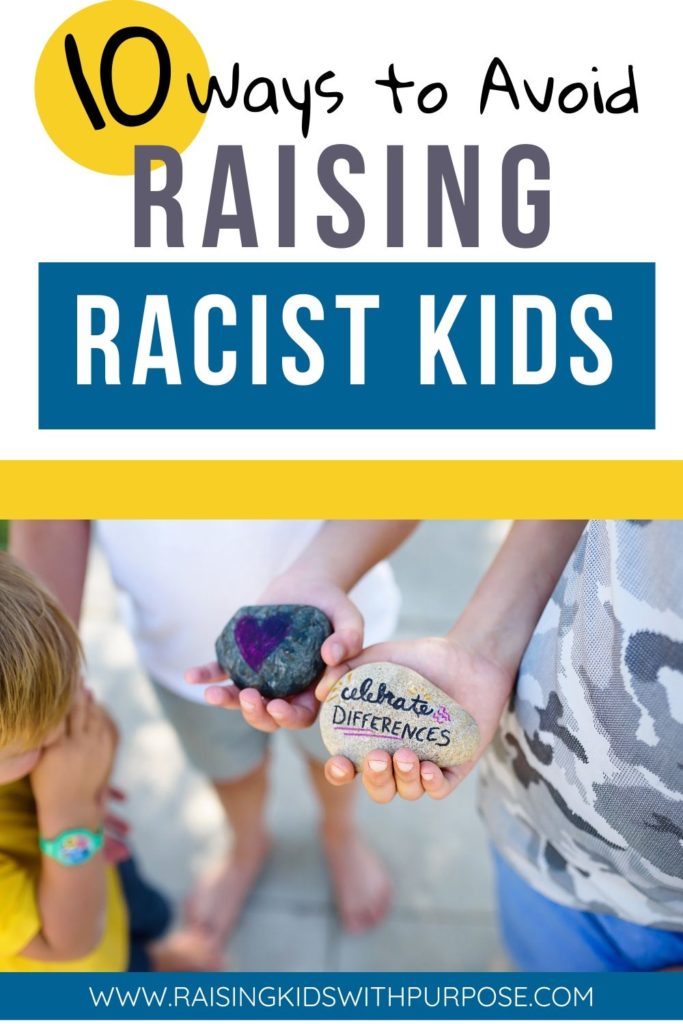
This post contains affiliate links, see disclosure policy for details.
I was so confused.
It made absolutely no sense to me why one person would be judged so harshly only because of what they looked like or who their ancestors were.
I was confused but also so naive. And I was ignorant for not realizing what this country was founded on. My knowledge was only based on what I learned in school, which hasn’t been the whole truth, right? I was never shaken to the core with the truth.
Although I had these feelings of wanting to stand up for my fellow human beings of different races, I really didn’t know how to. I was taught to be kind to all people but didn’t know a lot about racism or how to fight against it.
Now that I have children of my own and they are old enough to use their voices to make a difference, I am learning how to teach anti-racism and how to educate my children about what some of their friends have to face that they most likely never will. I don’t want to raise racist kids who inadvertently grow up with unintentional or intentional racist thoughts or actions.
We have also been focusing a lot on developing empathy. What it is, how to put ourselves in other’s shoes, and why it matters.
In our city where we are raising our kids, 84.2% of the population is white, almost 6% black, 3.5% other, 2.6% Asian, 3% more than one race, and less than 1% Native American. The surrounding cities’ demographics are also similar to ours.
So basically, we are raising white boys in a predominantly white area.
I have been cognizant about partaking in our city’s MLK Day Celebration and listening to black preachers and speakers talk about equality and the work of Martin Luther King, Jr.
Additionally, although I didn’t realize it the first time we went, I often take my boys to a barbershop where most of the barbers are black. Any time we have been, we are the only white people waiting and I’m usually the only female. But…
Table of Contents
Is making an effort to be around people of color enough?
No! It’s not.
This is why I need to figure out what my role is in raising anti-racist kids. I need to stop only giving the message of, “love all people and kindness wins” as I have been doing.
I need to stop being afraid of not saying the right thing or offending someone for fighting too hard or not fighting hard enough.
I need to stop feeling like I can’t do anything because I am white.
I need to stop (unintentionally) being colorblind.
I need to stop being fearful of everyone’s opinion and instead, live out what I know to be true and love all people in addition to standing up and fighting for what is right.
What Does It Mean To Be An Anti-Racist?
In order to understand what an anti-racist is, let’s look at what the dictionary says a racist is.
A racist is “a person who believes in racism, the doctrine that one’s own racial group is superior or that a particular racial group is inferior to the others.” Racism is defined as “hatred or intolerance of another race or other races.”
Even though I claim to not be a racist, I have had thoughts of racism without even realizing it. My eyes filled with tears as I reread that sentence.
I have to work hard to uncover where those thoughts are coming from and refrain from letting them manifest into something bigger.
Culture is a huge culprit as well as media exposure and honestly, policies in this country. I didn’t even realize how much I make general assumptions instead of focusing on individual behavior. Worst yet, I’m modeling that for my children.
To be an anti-racist is much more than just saying, “I’m not a racist.”
I recently listened to Brene Brown’s interview with Dr. Ibram X. Kendi about his book, “How to Be An Antiracist.” Much of what they both talked about really resonated and opened my eyes to the difference of not being a racist and being an anti-racist. What I gathered is there is no in-between. No gray area. Either you are or you aren’t and it takes hard work to rise above and distinguish racist idealogy and thoughts.
To be anti-racist means to move beyond saying you’re not racist and instead adopting and acting on antiracist views and beliefs. Kendi says, “What an anti-racist does first and foremost is identify racial inequities.”
Lastly, to be an anti-racist means that you need to let go of any racist thoughts and take action.
How To Avoid Raising Racist Kids
Before I get into the resources that will help our family practice anti-racism and not only focus on not being racist, I want to mention that I am working on being as authentically real as my soul will allow with every word.
If I pose a question or seem ignorant, it’s because I am and I want to learn more.
My OCD causes me to digest as much information as possible, but in this instance, there is so much of “I don’t know what I don’t know“.
Please feel free to comment below this post and add whatever other information that will help me and other parents become more purposeful in how we teach our kids about racism.
If you are in the same boat and don’t even know where to start, here are 10 ways to avoid raising racist kids. Also included are ways to teach your kids about anti-racism to empower them to stand up for what’s right.
1. Educate Yourself
This is it!
We must start with US!
The work begins in us before we even open our mouths to speak to our kids. This goes for everything in parenting. Not only do we have nothing to give when our emotional cup is empty, but we also have nothing to give if we lack knowledge or wisdom.
For me, I first start by diving deep into God’s word and praying for my brothers and sisters.
Because of current events happening in our country around racial injustice, there is an abundant amount of resources helping parents navigate this topic.
Out of all the articles and videos I watched, the one that I found the most valuable place to start is from Dr. Jazmine of the Mom Psychologist.
She strongly suggests that we parents put on our own oxygen masks first. She says, “We need to work on unlearning and relearning what we need to know because we cannot start this conversation about race until we have first started it with ourselves.”
In her video on How to Be a White Ally: How White Shame is Getting In the Way, she talks about sitting in discomfort and then using those emotions and feelings to take action. Don’t allow the discomfort or shame of not doing something in the past to keep you in that same place. Instead, rise up and do the work.
Being a highly sensitive and empathic person, this work is extra difficult for me. I can’t help but feel intense emotions as I digest the information. The tears don’t stop. But instead of allowing myself to flee from those uncomfortable feelings, I’m making a conscious decision to be gloriously ruined so I can grow through the pain.
Also, remember to give yourself time. Unpacking your mental model of what race is and what you do about racism took years to develop so it may take years to unravel enough to do something about it.
This is an ongoing process. Never stop learning.
Here are some people and resources that have been helpful for me so far on my journey to be an antiracist:
- EmbraceRace
- The Children’s Community School – Social Justice Resources
- How to Be an Antiracist by Dr. Ibram X. Kendi
- Real American by Julie Lithcott-Haims (I also highly recommend her book, How To Raise An Adult)
- Latasha Morrison
- What Does The Bible Say About Racism?
- The Mom Psychologist
- ADL
- Candace Owens
- Anti-racism Resources For White People Google Doc
- The Labouring Mom
- Becoming Mamas Together has a post with great resources
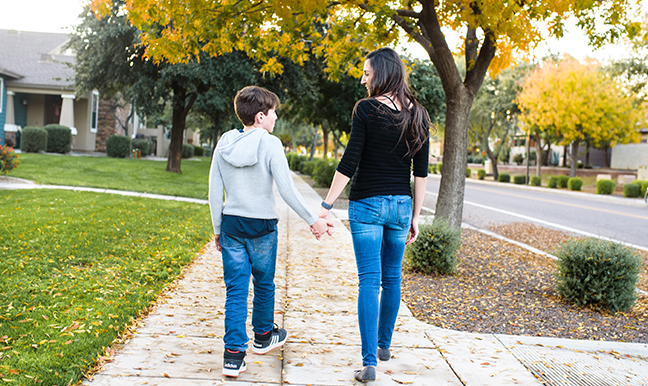
2. Talk About Race and Racism
Start early and do it often.
Having “the talk” one time about difficult topics isn’t effective. Only one conversation negates the importance or makes it seem taboo.
Many white parents neglect to talk about race. The reason is that they probably don’t even think about it or they don’t find it necessary.
Look around. It’s a conversation that can not be nor should be avoided.
How To Talk About Racism to Kids
When talking to your kids about race, be direct and specific. Point out differences in a positive light. Celebrate the differences of others that you see when reading books, while out in public, at school, or even watching a show.
Parents Magazine has a great age-by-age guide that walks you through how to talk to kids about racism starting very young.
- Ages 0-6: Expose your child to other races and cultures. If you don’t live in a diverse area, study other cultures together. If a need for conversation around racism or bigotry arises, do it but in a developmentally appropriate way by labeling emotions and giving basic facts. Remember silence is worse than saying too much.
- Ages 6-8: Conversations around racism may be a little easier at this age. Give your child the space to ask questions and express their curiosity. It is suggested that you use simple language, are honest, and don’t overdo it.
- Ages 9-11: Don’t allow kids to hear about scary events from TV or the internet. Instead, be the person that informs them what is going on. When discussing racism with this age group, keep the language neutral.
- Teens: Say something if you observe your teenagers engaging in racist thoughts or acts. Be cautious to keep the conversation open and help your teen think about concepts he or she has never thought about before.
Go with your gut and attune to where your child is in his or her understanding. The main point is to speak up instead of staying silent.
3. Read Books Together
As soon as I realized that I needed to step up my game in raising anti-racist kids, I logged onto the city’s library portal to request some books so we could start reading together.
I also added Stamped: Racism, Antiracism, and You: A Remix of the National Book Award-winning Stamped from the Beginning to my Amazon cart since there were so many pending requests from the library.
We have some others from this list we are wanting to add to our bookshelf as well.
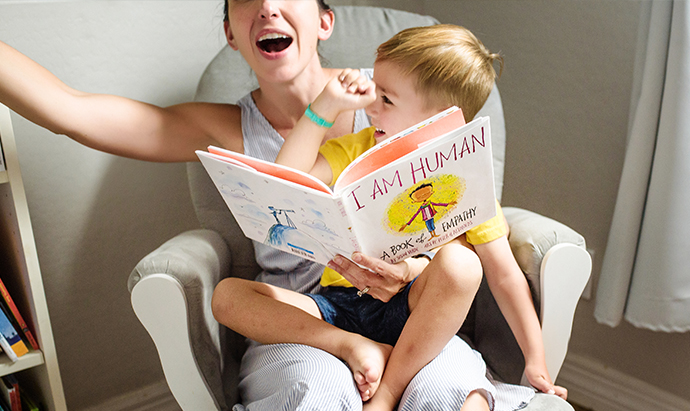
4. Teach Your Child How to Listen
Being a good listener is stinking hard. We are wired to voice our opinions, maybe offer help, and be heard. Listening takes more work.
The best way to teach our kids to listen well is to be a good listener ourselves. Use eye contact, and positive body language, and be fully present. Then point out those traits of being a good listener when trying to understand other people.
Have discussions about how much can be learned simply from listening without making judgments. Wyoming Early Childhood Network has a great infographic that teaches kids how to become good listeners.
5. Support People of Color and Other Races
Buy books from authors of all races, watch movies with diverse casts and/or directed by people of color, listen to music from other cultures, and attend plays or concerts with diverse casts or artists.
>> Looking for books to read with your kids or encourage them to read? Check out these lists of books I curated on parenting and teaching kids about diversity and race on Bookshop.
6. Diversify Your Friend Group
If you live in an area like we do, this is harder to do. It would be awkward and rude to go searching specifically for moms of different races simply because of the color of their skin. However, don’t just stick to your bubble. Join mom or parent groups, get involved in your child’s school, or get your child involved in sports so they can meet new people.
In addition to diversifying your friend group, speak up in your current circle of influence. I’ll keep saying this, but silence reinforces racism.
7. Guide Your Children’s Curiosity About Race
Psychological research has discovered that kids as young as three years old start assigning meaning to race and other people’s color of skin.
There are a few reasons for this.
First, they engage in essentialist reasoning which is when they begin to categorize people.
They also notice class-race patterns.
Last, children (and people of all ages) experience biases that cause them to navigate towards people who look and act like them. This ingroup bias can start as young as three. Another bias called “high-status bias” starts to develop around age four or five, which is when they show preferences for people who are of higher-status groups.
Having this understanding, we need to guide our kids’ experiences with people from other social groups, races, and cultures by teaching them to celebrate similarities AND differences.
When your child asks you an honest question about the color of their friend’s skin or the texture of their hair because it’s different than his or hers, don’t shut down the conversation. Instead, use your child’s curiosity to teach and ask questions that engage him or her in a deeper conversation.
Figure out what’s underneath the surface of the question or spark of curiosity. Ask yourself,
- “What is my child noticing about race?”
- “What is making him or her think in that way?”
- “What are they really saying or asking?”
- “What did they mean by that?”
- “Where did they hear that?”
- You can also ask your child to explain what they mean and see if they have the words to express their thoughts. You may be surprised.
While writing this, my eight-year-old was asking why I was reading so many articles and watching many videos. He was truly shocked that people would be treated differently because of the color of their skin. He also had a ton of questions about where the color comes from and if he could become black because he prefers that skin tone. So we started by looking up diagrams of skin to learn about melanin. Just with those two questions, we were able to unveil what racism is, how to spot it, and what to do about it. I was able to take his curiosity and guide him to learn more in an unbiased way.
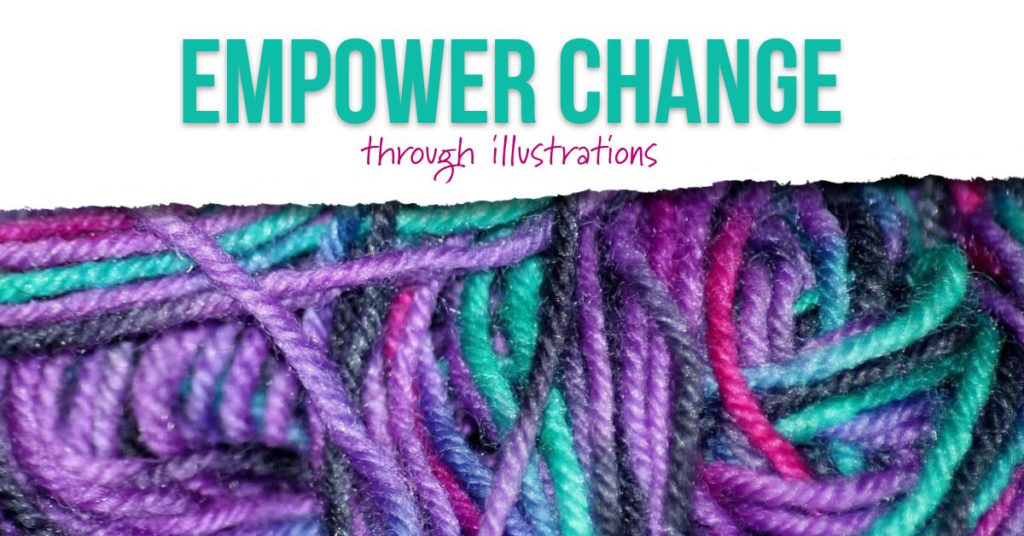
8. Make Visual and Tactile Connections That Empower Change
A brain is an association machine. This is why stories and analogies resonate better with people than straight-up facts. Find ways to visually demonstrate what racism does and why it’s important to fight against it.
One visual I came across was to have kids unravel a ball of yarn to create a tangled spider web. Once they are finished, the kids untangle the web. This visual illustration is then used to explain how much harder it is to untangle a web than it is to make which is very similar to how much harder it is to fix the unfairness that has been in this country for so long.
9. Teach Empathy
Empathy, empathy, empathy.
Empathy is declining in youth today making it even more important that we take the time to teach it.
Many well-intended parents talk about racial inequity as if people like Martin Luther King Jr, Rosa Parks, and other civil rights activists fixed it, making everything right again. Racial inequity is sometimes talked about as if it only happened in the past. Although things are different today, racism still exists. Biases are still embedded in our culture. Racist policies still exist and people are still not treated equally or as if their culture matters. We must keep all of this in mind as we teach empathy, self-awareness, and gratitude.
Ask your kids what they think it would be like to be judged for how they look. Point out how others are feeling based on what they say and the expressions on their faces.
We love the podcast, Imagine Neighborhood. It’s written specifically for kids to help them grow their social-emotional skills. I often reference some of their episodes when discussing empathy to help my kids understand better.
10. Advocate & Take Action
We often tell our kids we are all equal, but stop the conversation there. Instead, we need to model and show how to be an advocate. Take a stand against racism. our children have the power to be agents of change for all cultures.
On NBC’s Parent Toolkit, the author states, “An important part of being an advocate is not just saying people are equal, but acting in a way that reflects that thinking.”
Here are some practical ways you can be an advocate and in turn, teach your children how to advocate and take action:
- Look for organizations in the area doing anti-racist justice work and partner with them.
- Donate money to organizations like Mothering Justice.
- Go to your local library with titles of books written by people of color that you want them to purchase. Encourage them to buy more than one copy as well. I wanted to check out Stamped: Racism, Antiracism, and You: A Remix of the National Book Award-winning Stamped from the Beginning, and there were 24 requests for only one copy.
- Silence reinforces racial prejudices so learn when to listen and when to speak up and teach your kids the same.
- If you have older kids or teens, read through resources like this Justice Begins At Home guide from Racial Equity Tools to see how you can take action.
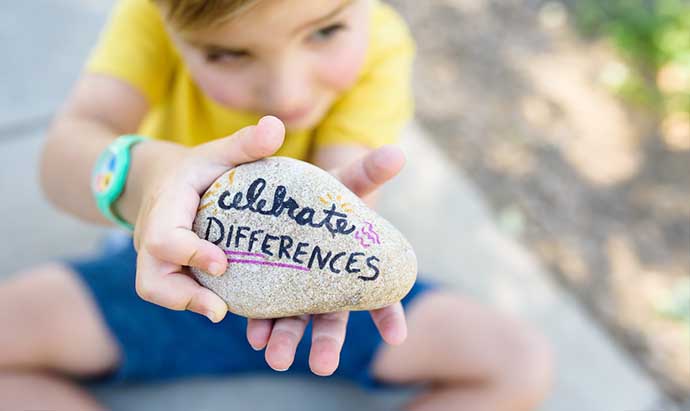
Join Me In Raising Anti-Racist Kids
My eyes have been opened so much wider as I devoured everything I read and saw in researching for this post.
We can’t stay silent.
Instead, we need to talk and talk often to our kids about fighting for what’s right. Saying, “everyone should be equal or love all people,” is no longer enough. If a fire has been lit in your heart like mine, I encourage you to share this post or comment on your thoughts below.


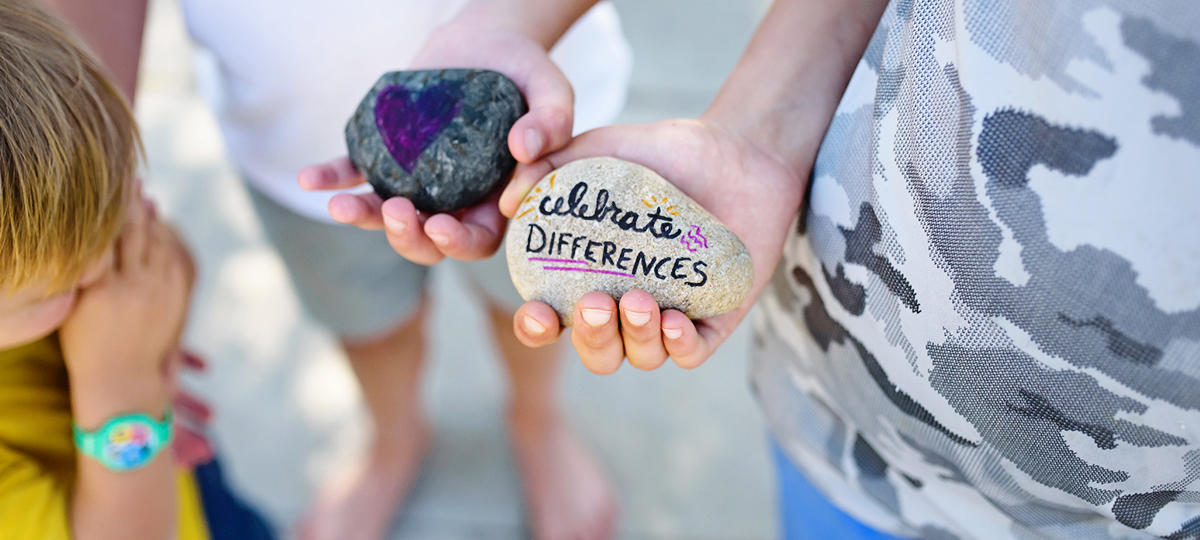
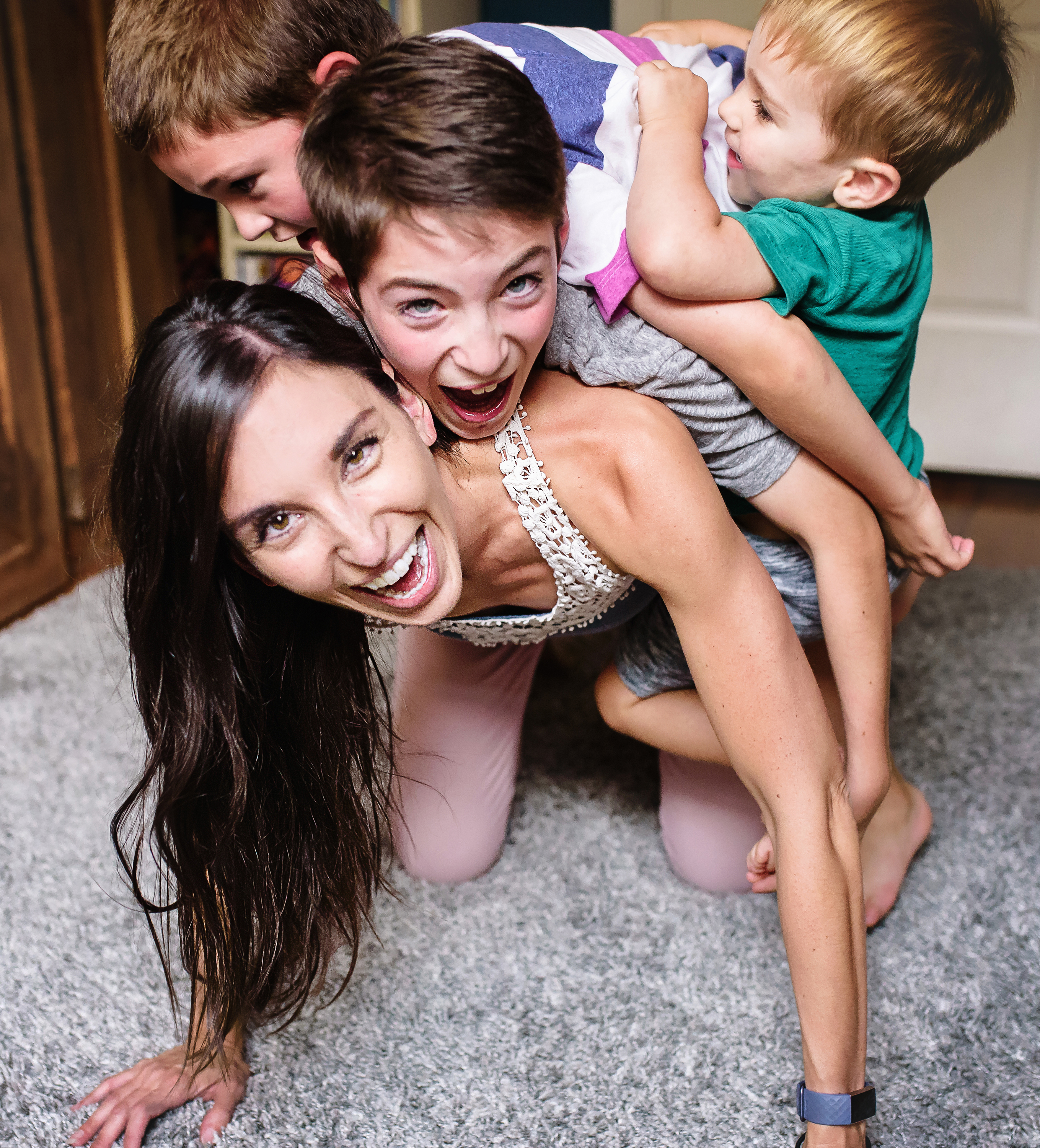
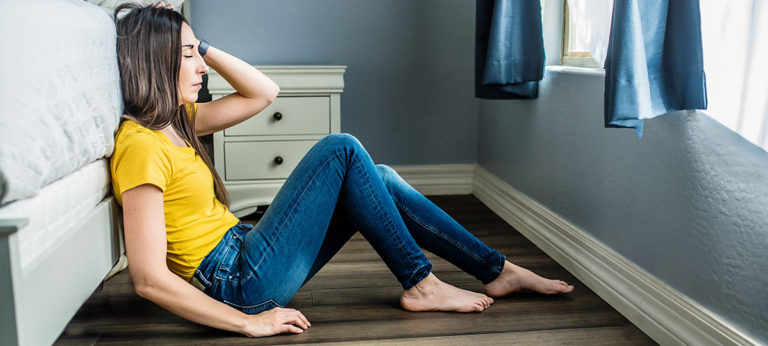

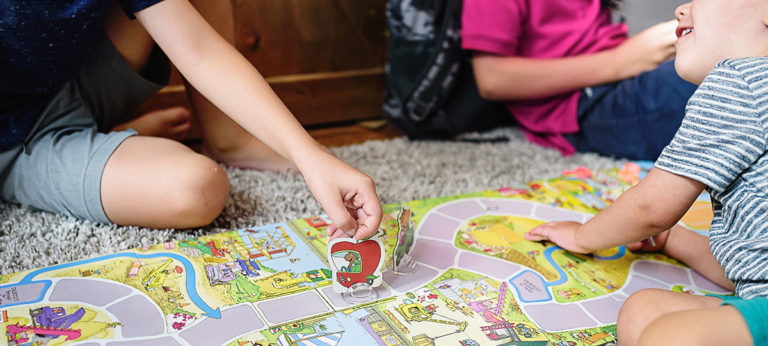
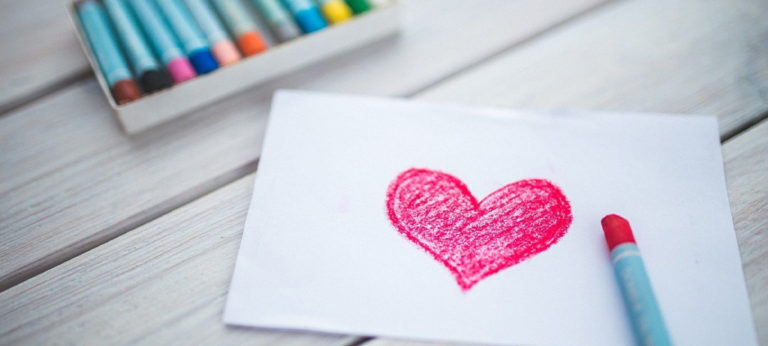
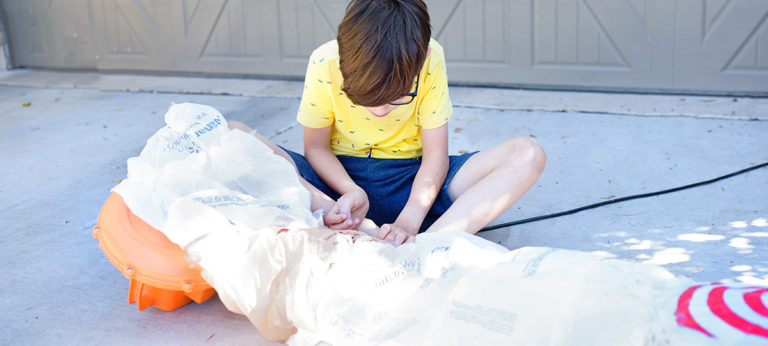
Moms have the most important job in the world and something we moms have to do is help combat racism. It seems overwhelming but we moms really can make a difference by teaching our children.
Thank you for using that word. Yes, it can be overwhelming but it’s so important because although I wish it wasn’t still prevalent, it is.
Amazing informational post, I as a mom will expose my children to all cultures. It is so important to teach our children young.
Thank you! Yes, it is important.
Education is key for parents and children! Love this post!!!
Agreed. Thank you!
Excellent pointers and ideas. I equated it to talking to our kids about sex. That’s not a one time discussion. That’s a whenever possible discussion. It just becomes a norm.
yes, me too. The whole having “one talk” just doesn’t work. It needs to be an ongoing conversation.
Being open and talking about race and people’s differences can definitely ease the conversation. I’m so glad that people are having these conversations now.
Thank you. I am too.
Could you tell me how Candace Owens has helped you learn how to be anti racist ? I have learned a lot from the podcast firstname basis. I’ve also added more people of color to my Instagram feed that have shared a variety of resources and children’s books which have started conversations on our home.
She has helped me look at issues from all sides. I watched a few videos of hers that I do agree with and others that of course, I don’t. I’ll have to check the first name basis. Thanks for the suggestion. And yes, we have done the same.
I love Brene Brown and will look for that interview! I have very similar feelings about race – I have been blind to my own privilege and am realizing I have ideas I must change – ideas I didn’t even know were there. Of course, raising kids who are accepting and loving to all is one of my most important goals.
I love Brene Brown too except I could do without the language. But that’s just my personal preference. LOL! That interview was really good and sparked some curiosity in me. I did download his stamped from the beginning book but haven’t started to read yet. Thank you for raising good humans <3 It's a tough job!
I love all of these resources! I’d like to better educate myself! Thank You for this post!
You are welcome. I hope they help!